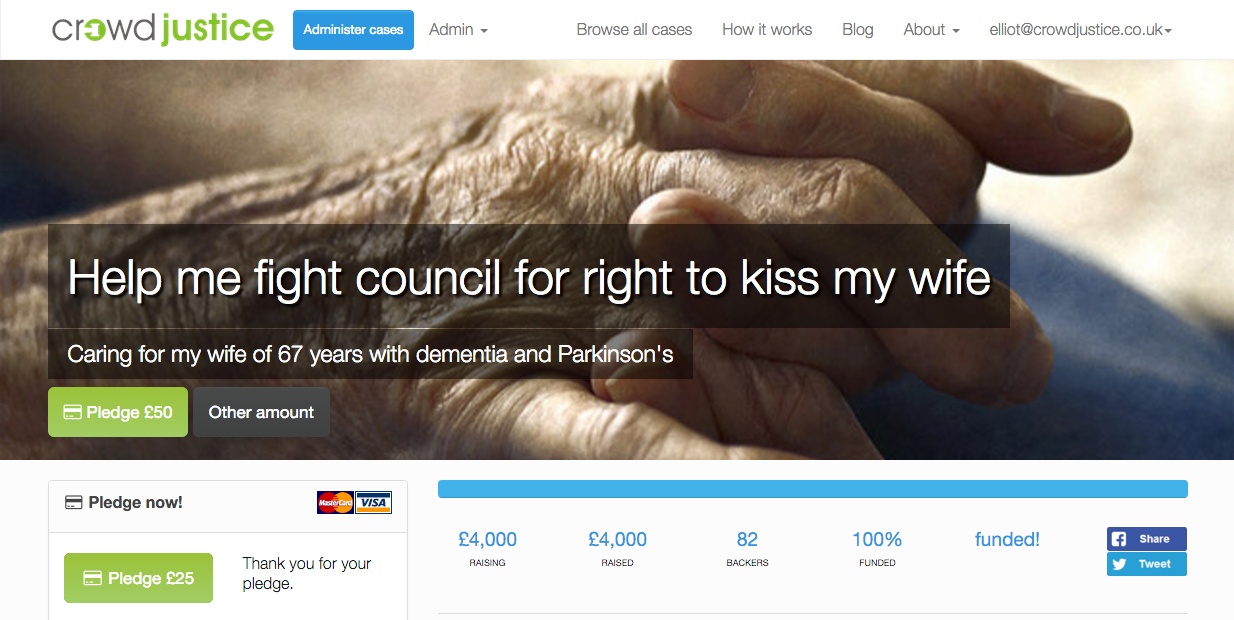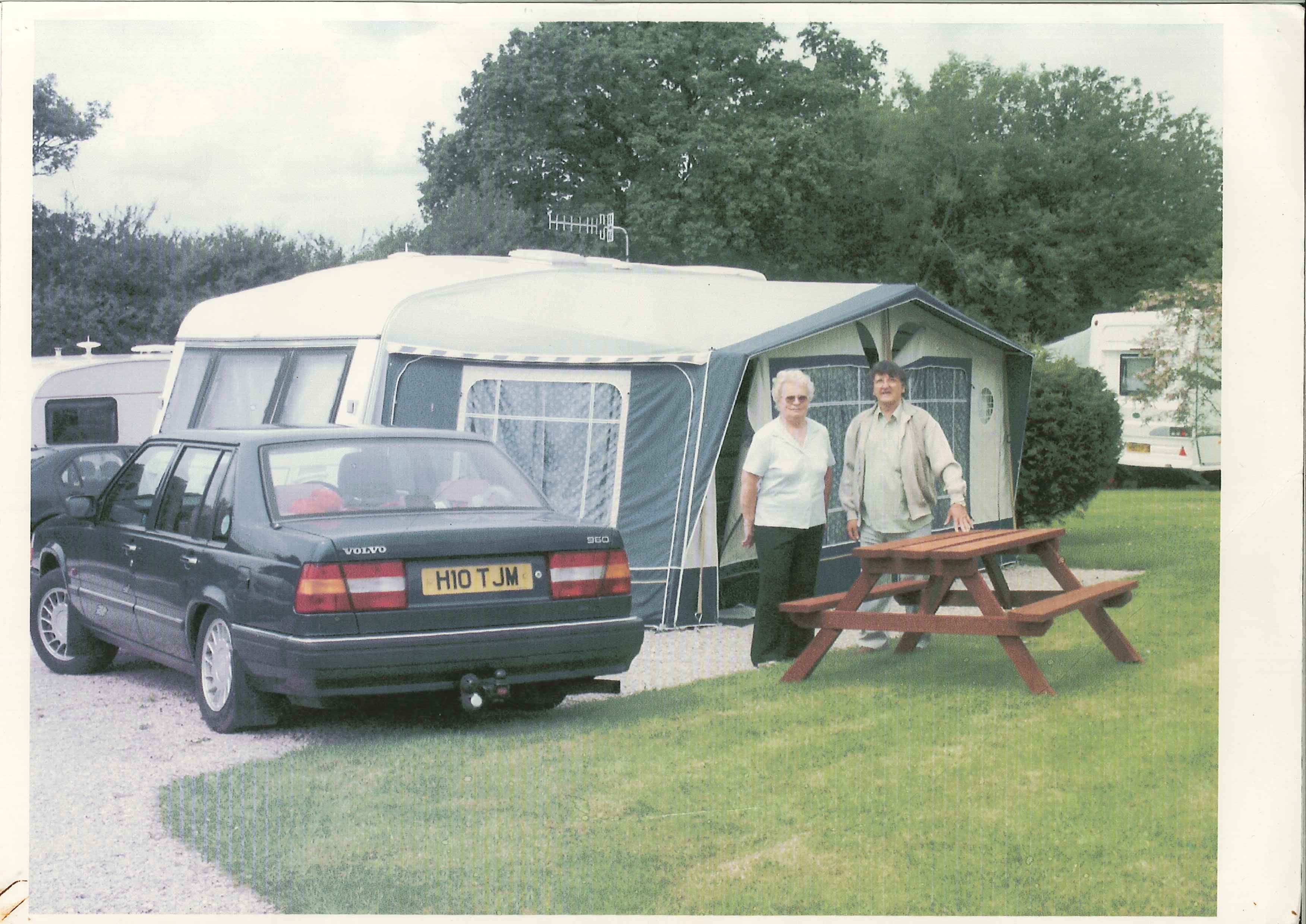Kush Sood, Coordinator of the Trent Centre for Human Rights in Nottingham, assisted a husband fighting for respect for his family life, with his legal case and his crowdfunding efforts.
What made you think of using CrowdJustice?
When the viciousness of Government proposals to restrict access to justice became apparent about 3 years ago, I took to social media to start campaigning against them. That’s where I came across CrowdJustice. I heard good things about the organisation, so I contacted them, as I was involved in a number of worthy cases which had fallen prey to increasingly restrictive Government legal aid policy.
I had just become involved in this particular case. The (then proposed) Claimant had been receiving some pro bono advocacy support in his negotiations with the local authority. He was not eligible for legal aid, and had already incurred great expense in previous proceedings, at which he ended up representing himself, having run out of money to pay his solicitors.
The situation was compounded by the fact that his wife’s legal costs in previous proceedings were taken from his own funds.
So it was a no brainer to go through CrowdJustice. The Claimant was backed into a corner, he had no options. I knew this would be a case that people would be sympathetic to.
Your client’s case successfully reached its target. Why do you think that is?
Whilst it is ordinarily litigants who lead the campaign to reach the target, that wasn’t an option in this case. To build the momentum of the campaign, I ended up having to be very hands on, for example liaising with the press and organising the publicity.
We received a lot of feedback from lawyers, care experts and the public. They were hugely sympathetic to the client. It isn’t difficult to be. He has been married for nearly 70 years and a huge number of questions remain unanswered as to the Local Authority’s treatment of him over the past few years.
Many people have emailed since we ran the campaign to tell us they have been experiencing something similar. There are a number of serious questions arising about justice with regards to elderly spouses with dementia or alzheimer’s who have been taken into care.

Kush’s client’s crowdfunding page on CrowdJustice.
In fact, the Law Commission is carrying out an investigation into this issue as part of its Mental Capacity and Deprivation of Liberty project. They have found evidence that the current arrangements are not fit for purpose in terms of recognising the views of family members and are exploring potential reforms.
The Court of Protection is also reviewing its position on the way that it manages the information relating to these cases.
There is relatively little case law on the issues involved in this case. By drawing people’s attention to the Claimant as a real example of how the current legal situation affects lots of people, we have helped communicate the human side of this law.
What is your top tip for people thinking of crowdfunding a legal case?
I would say firstly, make sure you have exhausted all legal aid options before you consider crowdfunding. Leave no stone unturned in terms of funding.
Secondly, make sure you have a case that is going to attract public attention and concern.
Crowdfunding is by no means a panacea for meeting the shortfall in funding litigation, but in certain cases it can be a godsend.
Did anything surprise you about your crowdfunding campaign?
Well, the emails from other people who have experienced similar things surprised me, and their support was heartening. We were always hopeful we would raise our target amount when we set out. What we had not anticipated was the widespread media interest, including from unlikely sources like Take A Break magazine and This Morning. We seemed to attract attention from a whole gamut of press. It was really surprising but good.

Kush’s client Thomas with his wife of 67 years.
Any other advice you would give someone thinking of crowdfunding a case?
Make sure you have planned exactly how long and how much of your time the campaign is going to take.
If you are the litigant, factor it into all your other commitments, such as work and family because it’s a huge undertaking.
If you are a lawyer and you’re assisting with the crowdfunding on behalf of your client, don’t forget that this work is not remunerated. Those who have worked with CCMS and even paper-based legal aid forms know about long hours spent on unremunerated work. Crowdfunding a case is even more time consuming. Dealing with CrowdJustice instead of the LAA, however, has undoubted benefits.
Any last advice?
I’ve noticed a degree of scepticism about crowdfunding among practitioners in the legal field. Some people feel that crowdfunding inadvertently and unfairly cherry picks cases that have emotive content or broad-brush appeal.
It is certainly true that a lot of the cases that lawyers take on involve very complex points of law, or groups or individuals who may find it difficult to crowdfund. Such cases, whilst often leading to historic and necessary developments, do not necessarily lend themselves well to crowdfunding.
We need to keep a very open debate about how to sustainably fund litigation. The fact that we are seeing innovation in my view is a credit to the innovators, but it is also a damning indictment of public policy. Those responsible for justice policy have made what ought to be a cornerstone of democracy reliant on a few brilliant minds, and even they struggle to plug even a tiny amount of the gaps left behind by reforms. That, however, is the reality of where we are, and we owe it to those in need to try and use whatever we can to fund their cases.
Kush Sood is on Twitter!
Have a legal case that could benefit from crowdfunding?